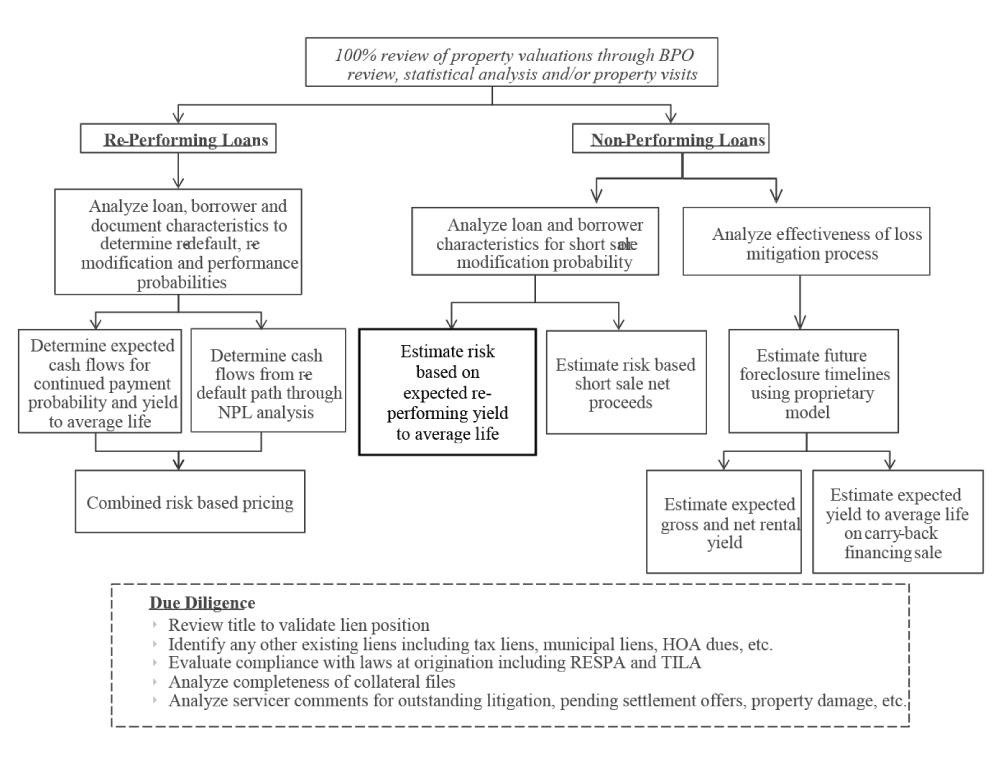•
the value of derivatives used for hedging is adjusted from time to time in accordance with accounting rules to reflect changes in fair value; and downward adjustments, or “mark-to-market losses,” would reduce our stockholders’ equity;
•
the credit quality of the hedging counterparty owing money on the hedge may be downgraded to such an extent that it impairs our ability to sell or assign our side of the hedging transaction; and
•
the hedging counterparty owing money in the hedging transaction may default on its obligation to pay.
Our hedging transactions, which would be intended to limit losses, may actually adversely affect our earnings, which could reduce our cash available for distribution to our stockholders.
Risks Related to Regulatory and Legislative Actions
We operate in a highly regulated industry and continually changing U.S. federal, state and local laws and regulation could materially adversely affect our business, financial condition and results of operations and our ability to pay dividends to our stockholders.
The residential mortgage industry is highly regulated. We and our Manager are required to comply with a wide array of U.S. federal, state and local laws and regulations that regulate, among other things, the manner in which each of us conducts our businesses. These regulations directly impact our business and require constant compliance, monitoring and internal and external audits. A material failure to comply with any of these laws or regulations could subject us and our Manager to lawsuits or governmental actions and damage our reputation, which could materially adversely affect our business, financial condition and results of operations.
U.S. federal, state and local governments have recently proposed or enacted numerous new laws, regulations and rules related to mortgage loans, including servicing and collection of mortgage loans. Laws, regulations, rules and judicial and administrative decisions relating to mortgage loans include those pertaining to real estate settlement procedures, equal credit opportunity, fair lending, fair credit reporting, truth in lending, fair debt collection practices, service members protections, compliance with net worth and financial statement delivery requirements, compliance with U.S. federal and state disclosure and licensing requirements, the establishment of maximum interest rates, finance charges and other charges, qualified mortgages, secured transactions, payment processing, escrow, loss mitigation, collection, foreclosure, repossession and claims-handling procedures, and other trade practices and privacy regulations providing for the use and safeguarding of non-public personal financial information of borrowers. Our service providers, including the Servicer and outside foreclosure counsel retained to process foreclosures, must also comply with many of these legal requirements.
In particular, the Dodd-Frank Act represents a comprehensive overhaul of the financial services industry in the United States and includes, among other things (i) the creation of a Financial Stability Oversight Council to identify emerging systemic risks posed by financial firms, activities and practices, and to improve cooperation among U.S. federal agencies, (ii) the creation of the CFPB, authorized to promulgate and enforce consumer protection regulations relating to financial products and services, including mortgage lending and servicing, and to exercise supervisory authority over participants in mortgage lending and mortgage servicing, (iii) the establishment of strengthened capital and prudential standards for banks and bank holding companies, (iv) enhanced regulation of financial markets, including the derivatives and securitization markets, and (v) amendments to the Truth in Lending Act (“TILA”), and the Real Estate Settlement Procedures Act (“RESPA”), aimed at improving consumer protections with respect to mortgage originations and mortgage servicing, including disclosures, originator compensation, minimum repayment standards, prepayment considerations, appraisals and loss mitigation and other servicing requirements.
In addition, although we do not intend to acquire MBS in which the underlying mortgage loans are guaranteed or insured by any GSE or U.S. Governmental agency, actions taken by or proposed to be taken by, among others, FHFA, the U.S. Treasury, the Federal Reserve Board or other U.S. governmental agencies that are intended to regulate the origination, underwriting guidelines, servicing guidelines, servicing compensation and other aspects of mortgage loans guaranteed by the GSEs or U.S. governmental agencies
